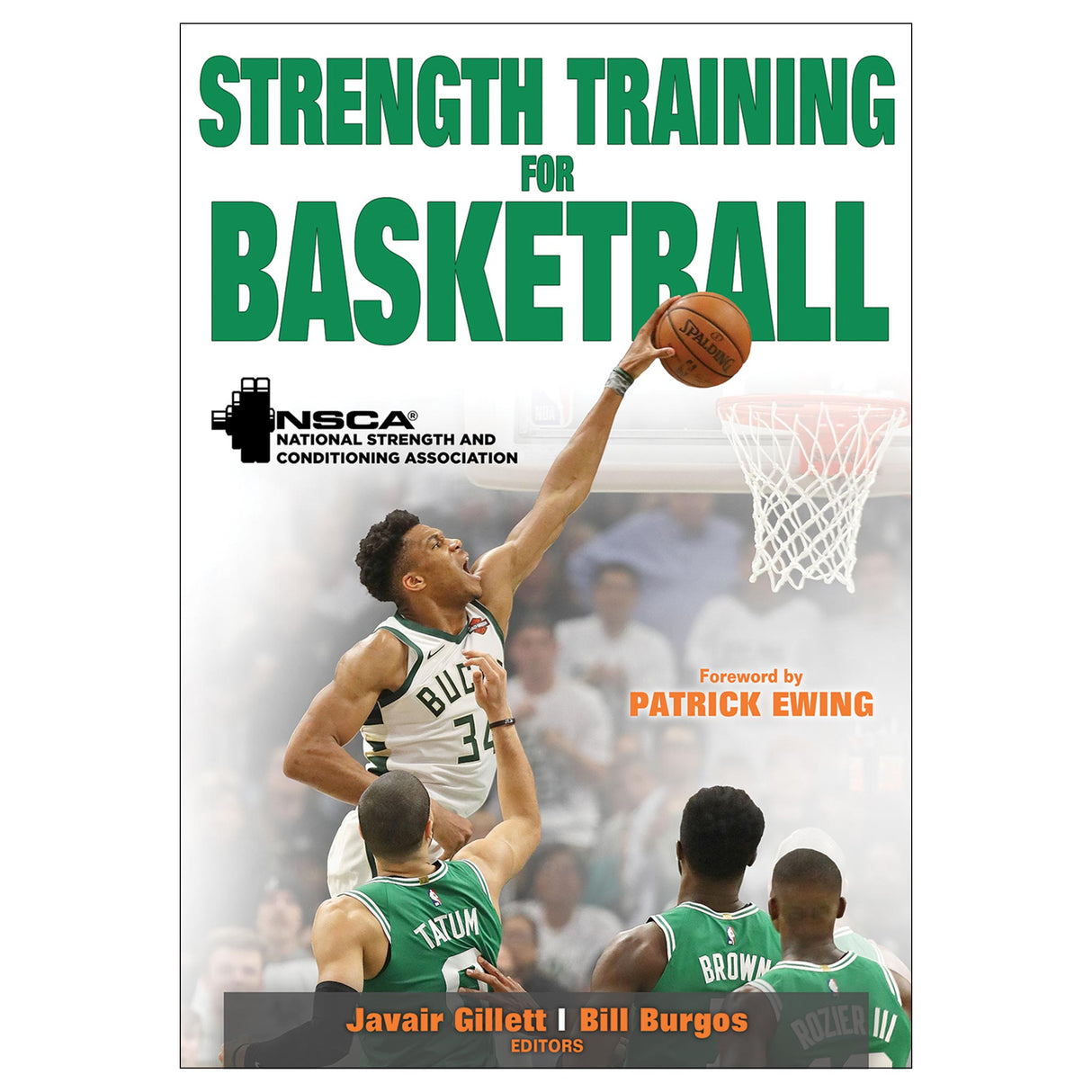Strength Training for Basketball epub
Author: NSCA -National Strength & Conditioning Association, Javair Gillett, William Burgos-Fontanez Jr.
$34.95 CAD
Access Duration: 10 Years
Developed with the expertise of the National Strength and Conditioning Association (NSCA), Strength Training for Basketball shows you how to design resistance training programs that will develop your athletes’ strength on the court—helping them to jump higher, accelerate faster, and abruptly change direction. The book will help you understand the specific physical demands of each position—point guard, shooting guard, small forward, power forward, and center. You will also find the following:
- 20 testing protocols for measuring and assessing athletes’ strength, reactive strength, power, speed, agility, endurance, and anaerobic capacity
- 18 total body exercises with 2 variations
- 19 lower body exercises with 3 variations
- 17 upper body exercises
- 11 anatomical core exercises with 5 variations
- 16 sample programs for off-season, preseason, in-season, and postseason resistance training
Backed by the NSCA and the knowledge and experience of successful high school, college, and professional basketball strength and conditioning professionals, Strength Training for Basketball is the authoritative resource for creating basketball-specific resistance training programs to help your athletes optimize their strength and successfully transfer that strength to the basketball court.
Earn continuing education credits/units! A continuing education course and exam that uses this book is also available. It may be purchased separately or as part of a package that includes all the course materials and exam.
Audience
Strength and conditioning professionals and personal trainers or other related professionals who supervise and train athletes for basketball; also for basketball coaches with intermediate or advanced understanding of strength and conditioning concepts and applications.Introduction by Javair Gillett and Bill Burgos
Part I. Principles of Sport-Specific Resistance Training
Chapter 1. Importance of Resistance Training
Bill Burgos
Chapter 2. Analysis of the Sport and Sport Positions
Steve Smith, Robby Sikka, and Tyler A. Bosch
Chapter 3. Testing Protocols and Athlete Assessment
Andrew Barr, Alexander Reeser, and Tania Spiteri
Chapter 4. Sport-Specific Program Design Guidelines
Katie Fowler and Amanda D. Kimball
Part II. Exercise Technique
Chapter 5. Total Body Exercise Technique
Bill Foran and Eric Foran
Chapter 6. Lower Body Exercise Technique
Mubarak Malik
Chapter 7. Upper Body Exercise Technique
Bryan D. Doo
Chapter 8. Anatomical Core Exercise Technique
John Shackleton
Part III. Program Design Guidelines and Sample Programs
Chapter 9. Postseason Programming
Josh Bonhotal and Bryce Daub
Chapter 10. Off-Season Programming
Josh Bonhotal and Bryce Daub
Chapter 11. Preseason Programming
Nic Higgins and Scott Thom
Chapter 12. In-Season Programming
Nic Higgins and Scott Thom
Javair Gillett, MS, CSCS, RSCC*D, is the head strength and conditioning coach and director of athletic performance for the Houston Rockets. Prior to joining the Rockets, Gillett spent 14 years with the Detroit Tigers, and he has worked with the Orlando Magic, Indiana University, and Penn State University.
Gillett is certified as a Registered Strength and Conditioning Coach (RSCC*D) by the National Strength and Conditioning Association. He has a master of science degree in human movement from A.T. Still University and completed his bachelor’s degree at DePauw University, majoring in health and human performance with an emphasis in exercise science. He lettered four seasons with DePauw University’s baseball team and was given All-Conference honors two of those four years as well as All-American Honorable Mention his final season.
Gillett dedicates himself to sharing his knowledge with youth athletes, parents, and coaches. He has been a speaker at numerous educational events and has published research articles and other educational content for a variety of resources. During the off-season, he resides in Houston with his wife, Erin Counts, and daughter, Anabella Rose.
Bill Burgos, MS, CSCS, RSCC*D, is the former head strength and conditioning coach of the Orlando Magic and New York Knicks, immediate past president of the National Basketball Strength & Conditioning Association (NBSCA), and a former member of the National Basketball Association (NBA) Sports Science Committee and the Jr. NBA Leadership Council. His passion for sports performance has driven him to master his craft in this industry; he has worked with technology and traditional sports training, has experience in the field of wearable technology, and has consulted with such companies as Intel and Kinduct.
Burgos has been an invited speaker at several events, including the NFL Technology and Performance Symposium, NBA Health and Performance Summit, National Basketball Players Association (NBPA) Sports Medicine Symposium, and the Rugby Innovation Summit in London, where he spoke on how technology is currently being used in his program and on the significance of communication among a high-performance staff. Helping to make a mark in the industry, he created an applied exercise science (sport science) course that is offered online at Austin Peay State University.









